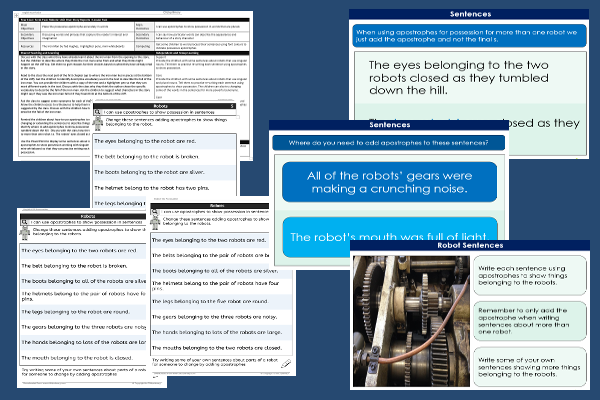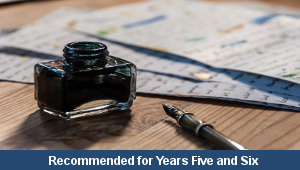Lesson Two – Robot Sentences

This English teaching pack for Key Stage Two gets the children to model how to convert different sentences about robots with singular and plural nouns when using apostrophes to indicate possession.
The class can identify and explain how authors select and use special vocabulary to describe characters in a narrative story to show the sequence of events.
Download this teaching pack including a lesson plan, classroom activities and an interactive presentation to model how to convert different sentences about robots with singular and plural nouns when using apostrophes to indicate possession
Activities in this teaching pack include sets of differentiated worksheets to convert sentences about robots with singular nouns for support ability levels and plural nouns for core and extension ability levels to use apostrophes indicating possession.
The interactive presentation gets the children to explore how to convert sentences about robots with singular and plural nouns to use apostrophes indicating possession.
This lesson is part of an English scheme of work to get the children to investigate how authors describe and use characters in a fantasy story, use apostrophes to show possession to punctuate descriptive phrases and practise punctuating sentences. There are teaching activities for shared learning, differentiated worksheets to support independent learning and interactive presentations to introduce concepts and key skills.
-

Maths Arithmetic Assessment
Assess abilities in solving arithmetic number problems for addition, subtraction, multiplication and division when working with informal and formal written calculations
-

Environment
Identify and describe some of the special landscapes and locations that can be found in the world and reflect on how they can be protected and preserved for the future
-

Silent Letter Words
Explore and illustrate the meanings and spellings of some different words with silent letters when using them in a range of topics and scenarios
-

Complaint Letters
Explain and model how to format and structure writing when composing letters of complaint about different issues and scenarios
